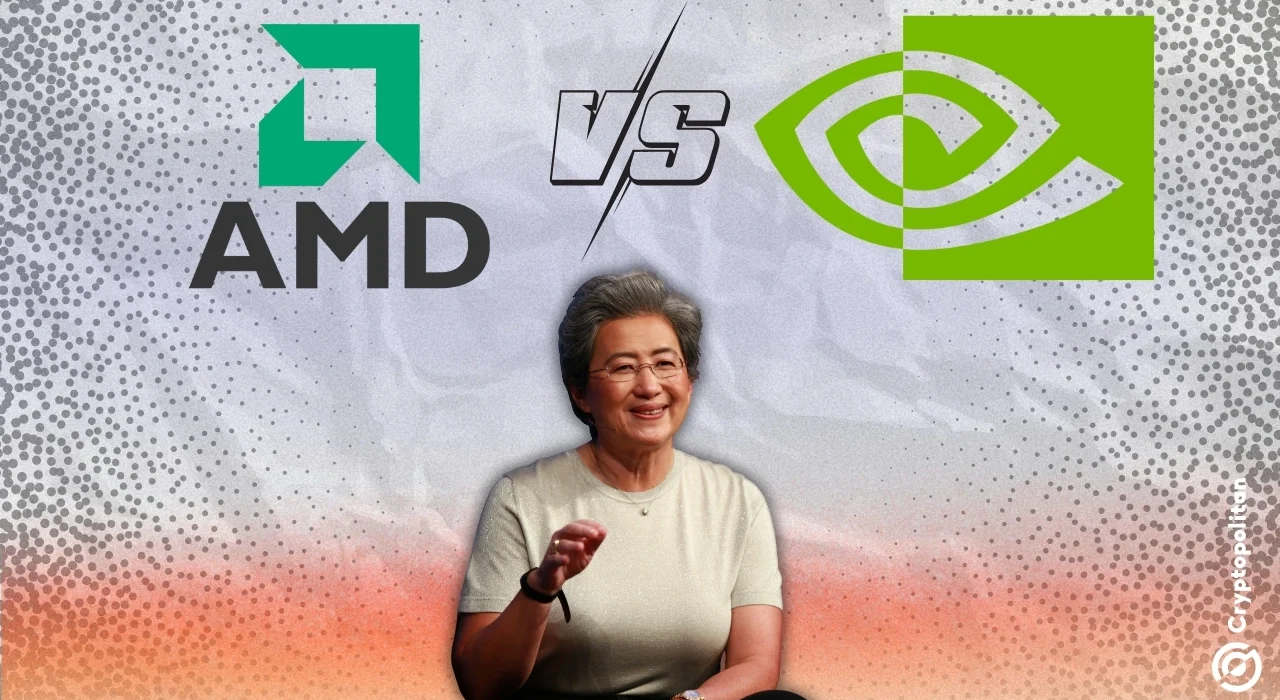To celebrate a decade as CEO of Advanced Micro Devices (AMD), Lisa Su sat down with Bloomberg’s Emily Chang. During the discussion, Su spoke about her plans to challenge Nvidia in the AI sector and expand AMD’s global market presence.
According to Lisa, she has successfully guided AMD through challenging times and transformed it into a notable company in the semiconductor industry during her tenure as CEO.
Her leadership has revitalized the company, taking its stock from $2 a share to over $130 a share. The once-struggling company has now become one that plays a critical role in high-performance gaming and computing, supplying chips for devices like the PlayStation 5 and Xbox Series X.
AMD aims to outperform Nvidia in the AI sector
Su is determined to expand the company’s role in artificial intelligence. During the conversation with Bloomberg’s Emily Chang at AMD’s Austin labs, the CEO outlined her vision to take the lead from Nvidia. So far, the chipmaker has set an almost unassailable lead in the AI industry, with almost 84% of the AI chip market.
Nvidia and Intel have always been AMD’s top competitors in high-performance computer technology. Currently, Nvidia’s chips are used by Meta, Google, and Amazon. AMD expects the release of its new Zen architecture to help it close the gap in its chase.
Part of Su’s strategy to challenge Nvidia in the AI market includes leveraging AMD’s cutting-edge hardware to support AI workloads.
“I truly believe AI is the most transformational technology that I’ve seen in my career,” Lisa told Emily. She went on to say, “The rate and pace of change in the industry, it’s like faster than anything we’ve ever seen.”
AMD is open to a global AI market
As AMD grows its presence in the AI and computing markets, it faces more than financial and operational challenges. With chips gaining more importance geopolitically, a new challenge arises for the company. China and the US, in particular, present Lisa with the biggest headaches of navigating geopolitical tension.
The US government has taken steps to restrict chip exports, raw materials for manufacturing, and even advanced technology to some countries over security concerns. While Su recognizes the national security interests, she also states that AMD wants there to be “as open a market as possible.”
When asked if chip manufacturing will ever return to the US, Su said, “I think we will see chip manufacturing back in the US. I think we should recognize, though, that the semiconductor world is global. That ship has sailed.”
Throughout the interview, Lisa Su maintained that AMD will remain competitive and innovative. The company will continue to thrive and grow in the industry, navigating whatever challenges may come.
From Zero to Web3 Pro: Your 90-Day Career Launch Plan








